- Language:
- English
- 中文
Perseverance and Pride: AAPI Healthcare Workers Get Personal About Racism
In honor of Asian American Pacific Islander Heritage Month, healthcare heroes from across NewYork-Presbyterian reflect on fighting COVID-19 and hate — and why it’s time to speak up for each other.
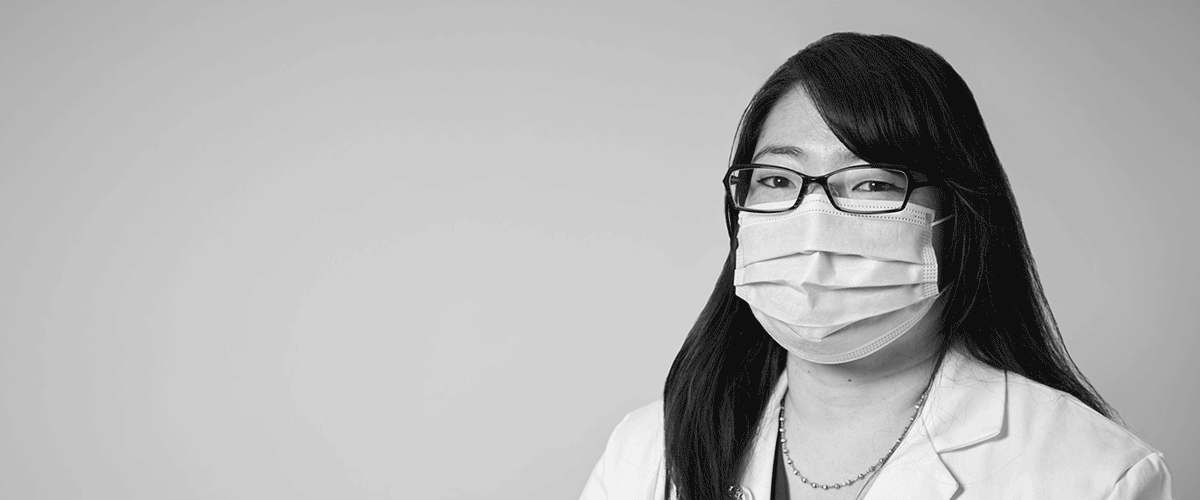
Each May, Asian American Pacific Islander (AAPI) Heritage Month recognizes the multitude of cultures and experiences that represent the Asian American community. But this year, it’s much more than a celebration: It’s an occasion to share personal stories, speak up, and unite against anti-Asian sentiment.
For the AAPI healthcare workers across NewYork-Presbyterian, this May follows a challenging 16-plus months in which they fought COVID-19 from the front lines, only to find themselves simultaneously battling a growing wave of anti-Asian attacks. These eight individuals come from diverse backgrounds and offer unique perspectives, but their message is singular: Stop Asian Hate.
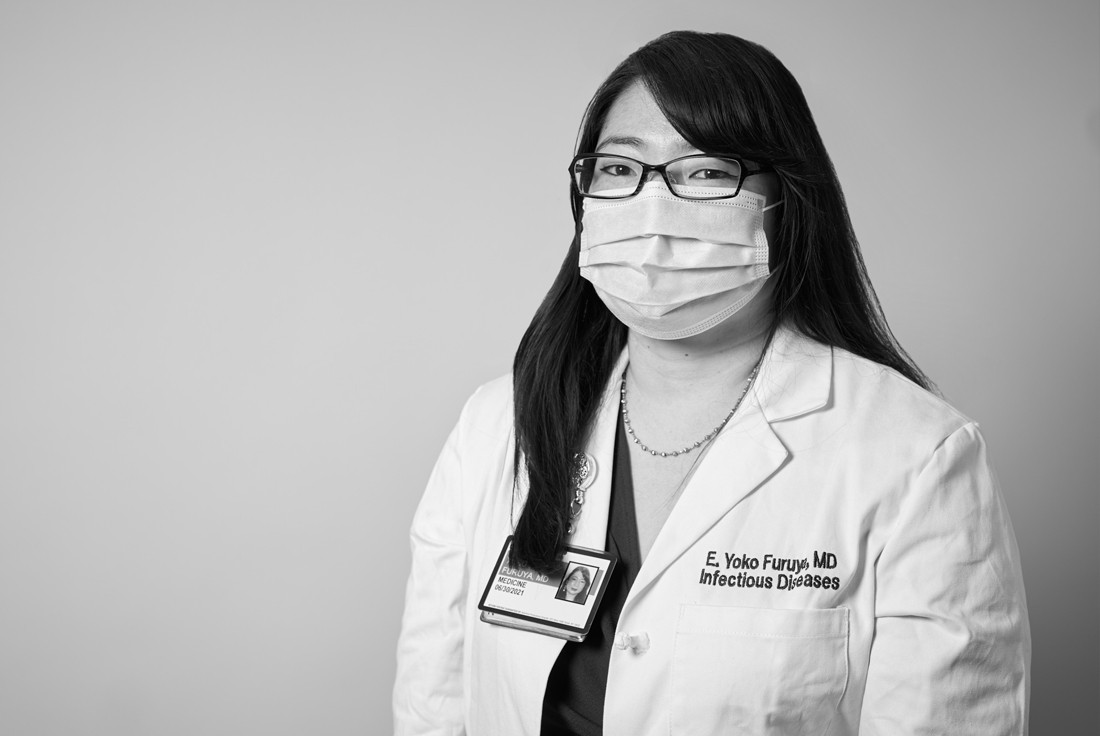
“I was working so hard to fight against COVID and to help other people. And yet I was being blamed.”
Dr. Yoko Furuya
Chief Epidemiologist and Medical Director of Infection Prevention and Control, NewYork-Presbyterian Hospital
Most of the country remembers March 2020 as the beginning of the COVID-19 pandemic. For Dr. Yoko Furuya, coronavirus was already a big part of her daily life two months earlier, in January. Knowing that it was spreading in China, Dr. Furuya, the chief epidemiologist and medical director of Infection Prevention and Control for NewYork-Presbyterian Hospital, and her team were already preparing the hospital, putting together guidelines and educating staff about the virus that people knew so little about.
When NewYork-Presbyterian diagnosed its first COVID-19-positive patient, “Everything went into hyperdrive in one night,” she says. “From that point, I felt like I just didn’t have a moment to breathe. My email was exploding. I was getting all these texts and calls. Everyone was turning to me and my team for our help and guidance. I was definitely feeling a very heavy weight of responsibility on my shoulders, that if I make the wrong decisions, then it puts all of our staff and patients in jeopardy. Trying to make the right decisions based on such limited information and data and guidance was incredibly stressful.”
The stress was compounded when Dr. Furuya experienced a racist incident while riding the subway home from the hospital. She was reading on the train when a man approached her and yelled, “You Chinese b—-. COVID ruined my life. I want to punch you in the face,” she recalls. Dr. Furuya avoided making eye contact and got off at the next stop, angered by the confrontation. “I was exhausted from work. I was stressed out,” she says. “I had this running commentary in my head of what I wanted to say to him, but I didn’t because I didn’t want to make things violent. I wanted to say, ‘I’m American. I’m a doctor. I’m working to try to help people. Why are you yelling at me? What have I done to you?’”
This past year, Dr. Furuya has seen firsthand how the COVID-19 pandemic has brought out the best and worst in people. When she thinks back to the spring of 2020, she remembers the hope more than the stress: “I never want to live through that again. But at the same time, I think it’s easier to remember the things that we gained — the teamwork, the collaboration, feeling really, really grateful for the people on my team and at NYP in general.” And even as the country is seeing hope for the end of the pandemic, she realizes there’s plenty of healing that still needs to be done as she reflects on her Asian American experience. “I don’t know that I’ve come to any conclusions,” she says. “I think I’m still processing, what does it mean for me to be Asian and how best can I live that experience, and if there’s anything I can do to make that experience more understandable for other people.”
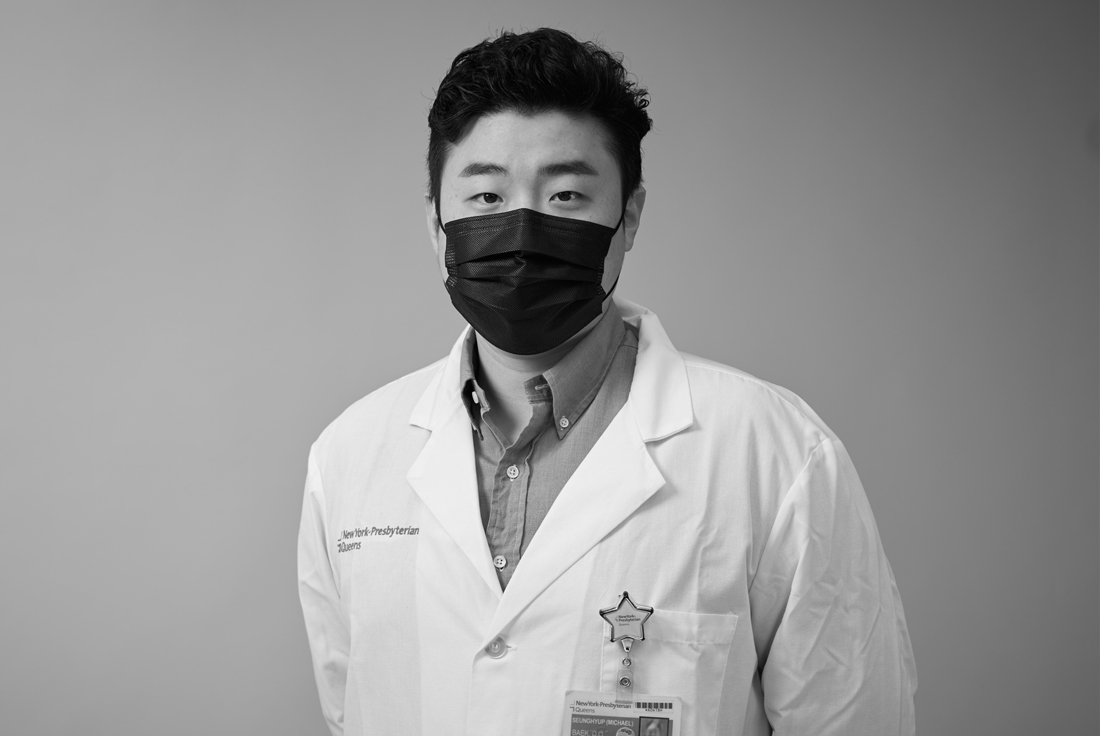
“I grew up in Atlanta, and the mass shooting took place nine miles from my parents’ store.”
Dr. Seunghyup Michael Baek
Internal Medicine Resident, NewYork-Presbyterian Queens
Dr. Seunghyup Michael Baek had just finished his shift when he saw the news: A gunman had opened fire in the Atlanta area, killing eight people, six of whom were women of Asian descent. Dr. Baek immediately called his parents, who own a small business nine miles from where two of the shootings took place.
With AAPI hate crimes on the rise, Dr. Baek, an internal medicine resident at NewYork-Presbyterian Queens, had been checking in with them several times a day. When his parents don’t answer, he starts to worry. This time, as Dr. Baek held his breath, they picked up; they were safe and driving home. “I never know what can happen, so every phone call with them is dear,” he says.
The Baek family moved to Georgia from Korea just before Dr. Baek started sixth grade, and his parents have owned their store for 15 years. While it was difficult being one of only two Asian American kids in his new school, Dr. Baek and his family became part of the community — neighborhood kids who frequented his parents’ store call them “Mom and Pop.” Still, they’ve been the target of their share of racist slurs through the years, and Dr. Baek has become increasingly concerned for his parents’ safety this year.
In New York, he is similarly worried about his friends and family, noting that his female colleagues and cousins have faced the worst of the harassment. “They’ll yell for help and nobody cares,” he says. “In the hospital, when a patient calls for help, we come running, but out in the world, when my female colleague yelled for help, nobody came. It makes me sad. It’s not right.”
Between the incidents in his hometown of Atlanta and his adopted home of New York, Dr. Baek has felt the urgency to push for change. When NewYork-Presbyterian Queens held a moment of silence for the victims of AAPI hate crimes in March, Dr. Baek implored everyone to speak up. “If we stay silent, it means we are no different than those who see the violent incidents and ignore them,” he says. “Silence is not the solution. Working at a hospital, we are here to help heal patients, and I believe we can also help heal these racial divides.”
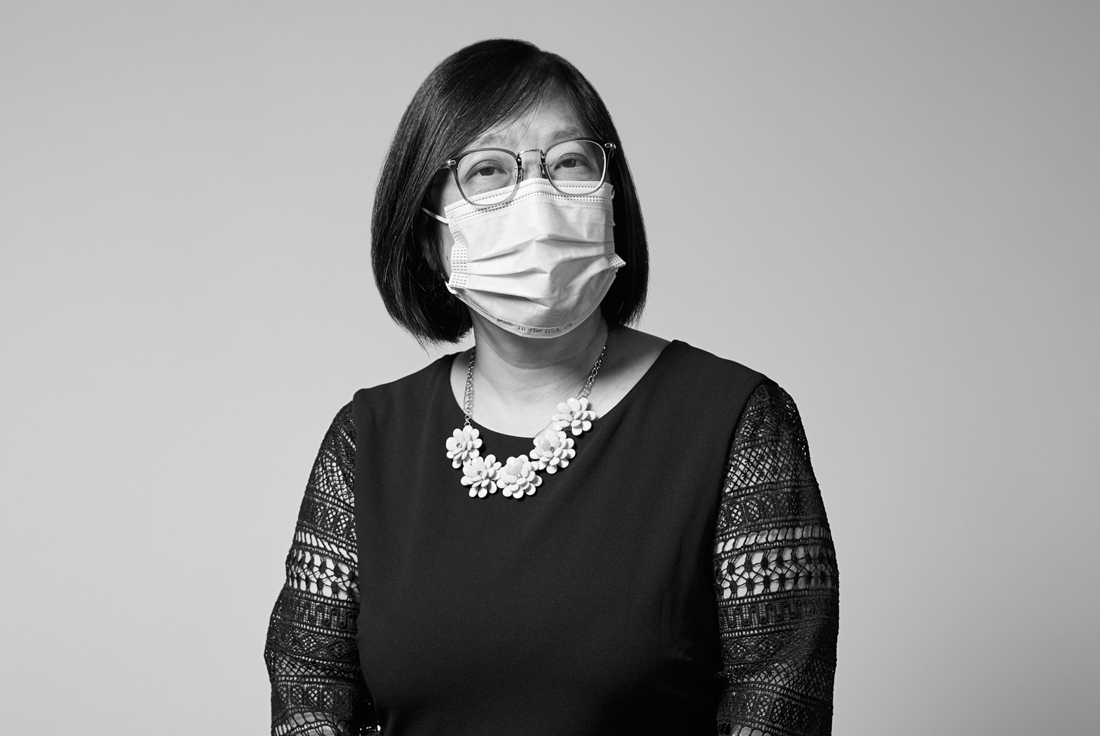
“I see the daily challenges the Chinatown community faces firsthand.”
Chui Man Lai
Community Affairs Manager, NewYork-Presbyterian Lower Manhattan Hospital
Chui Man Lai has lived and worked around Manhattan’s Chinatown her entire life. She’s accustomed to seeing vibrant streets, the smells of the markets, and the din of the crowds. It has been heartbreaking seeing her community not only devastated by the economic shutdown due to COVID-19, but also gripped with fear over the anti-Asian violence. “It’s sad when you see the history and places that you used to hang out just gone,” she says. “You feel a piece of you is lost.”
Over the last year, Lai has been hard at work to keep her community afloat since the COVID-19 pandemic hit New York City last spring. As community affairs manager at NewYork-Presbyterian Lower Manhattan Hospital, Lai and her small team have made more than 900 check-in calls to residents in Chinatown, many of whom are elderly and don’t speak English. Instead of greeting community members at in-person health talks and at crowded street fairs as she typically does, Lai has transitioned to phone calls to make sure the most vulnerable residents of Chinatown were taking care of their physical and mental health.
Sometimes she’s found herself on the phone with a person for more than an hour.
“A lot of the elderly that we spoke with, many of them were very afraid to leave their house,” Lai says. “They were scared, first of all, to contract the virus. And many of them don’t feel safe, because they don’t want to become victims of a hate crime.”
In addition to the phone calls, her team has also taught many seniors how to transition to a virtual platform, using Zoom to give health talks. “I wish I could give them a big hug,” she says. “Every time when we have these Zoom meetings, we always say encouraging words to each other, like, ‘Things will be better. Very soon, we’re going to go back to dim sum.’ I guess no matter what age you are, you need encouragement. We try to give them confidence — and also to show them that we care.”
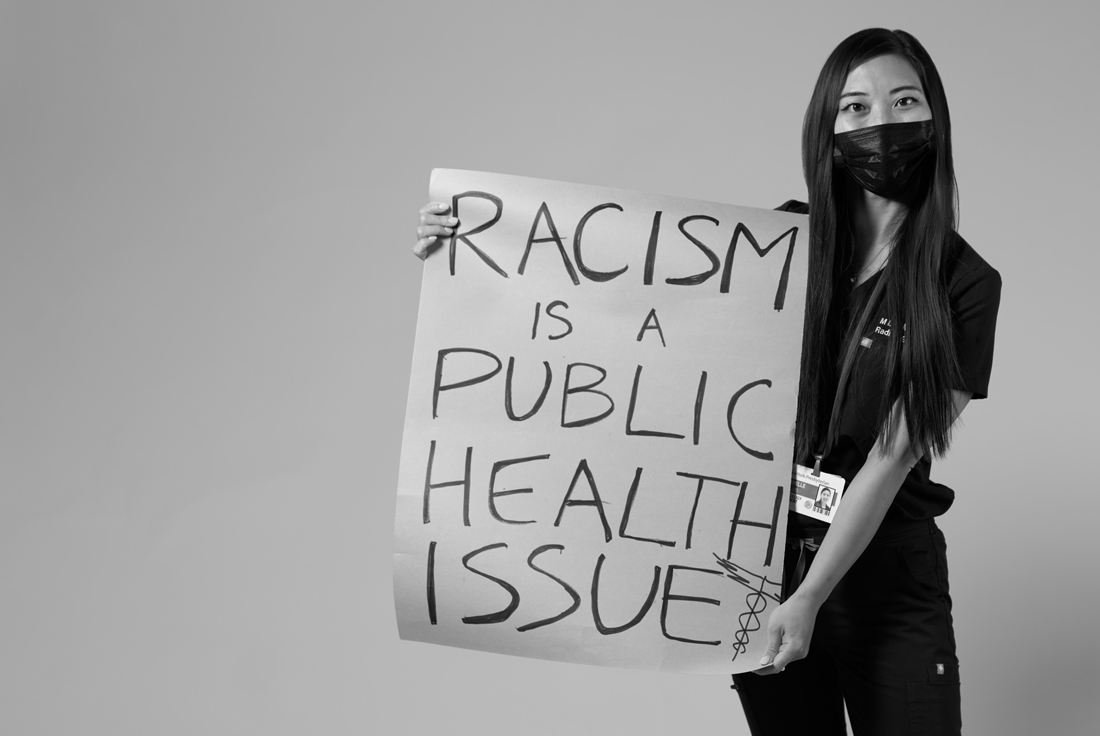
“I rallied my fellow healthcare workers because there was no way I could stay silent.”
Dr. Michelle Lee
Radiology Resident, New York-Presbyterian/Weill Cornell Medical Center
Since the start of the pandemic, Dr. Michelle Lee had been hearing about one violent act after another against her AAPI community. New York City had seen an 833% rise in anti-Asian hate crimes from 2019 to 2020, alongside a national surge of anti-Asian racism, and it was hitting close to home: A fellow resident physician spat on while heading to work, a medical student called “Chinese Virus” and beaten outside the hospital, a nurse punched in the stomach entering the subway as she left her night shift. Dr. Lee herself was spat on — twice, on two separate occasions in Manhattan.
After the mass shootings in Atlanta in March that killed eight people, including six women of Asian descent, Dr. Lee felt she needed to take action against the rising Asian hate. Within four days, she organized a group of more than 100 AAPI healthcare workers and their allies to take part in a peaceful citywide rally protesting escalating national anti-Asian racism. They stood together as a front line of “White Coats Against Asian Hate.” She credits being inspired by the “White Coats for Black Lives” group, which she was a part of as a medical student. “Racism is a public health issue, and a doctor should call it out,” she says. “When we fight against anti-Asian hate, we are also fighting for Black Lives Matter.”
With violent attacks not abating, Dr. Lee has continued to march in peaceful protests while writing about her experiences and issues such as the need for bystander intervention training. At the same time, she is working to enact change internally by creating a mentorship program between NewYork-Presbyterian staff and medical students to build a stronger community within the healthcare system. “I want to make sure they know they’re not alone, and that someone who’s a doctor in their field is there for them,” she says. “I think in order to fight hate, you have to increase solidarity.”
Dr. Lee is committed to making sure that activism and advocacy are woven into her work as a doctor. “We don’t practice medicine in a bubble,” she says. “We practice in a very complex socioeconomic and political texture. It’s essential for us to call out a problem and diagnose it as an issue that affects the population we are treating.”
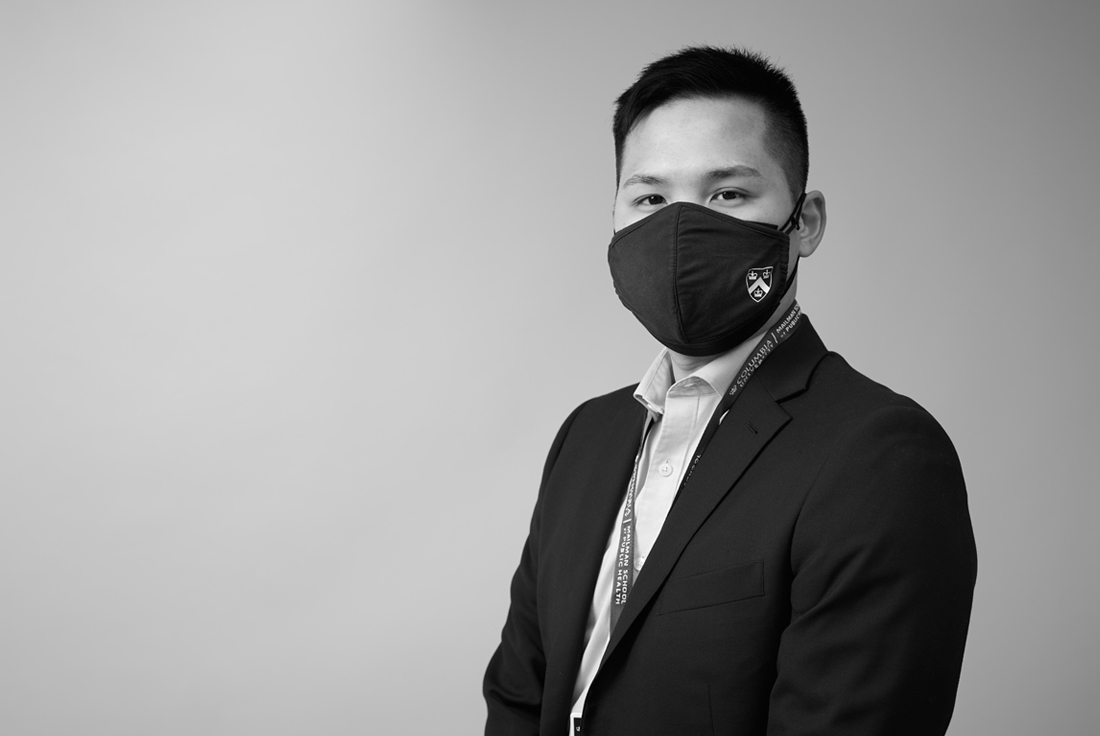
“I’m a disabled veteran who was ready to go anywhere to protect our country.”
Jacky Chen
Project Manager, Quality and Patient Safety, ColumbiaDoctors
Inspired by how his immigrant parents came to the United States from China and made a successful life for themselves and their three children, Jacky Chen wanted to give back to his country. In college, he enlisted in the military with the hope of becoming an Army physician. Chen was training to deploy to Afghanistan when he suffered a traumatic brain injury from an accident. “I am now a disabled veteran, but I was ready to go anywhere to protect our country,” he says. After leaving the military, he decided to pursue a master’s degree in health administration and dedicated himself to serving patients at an administrative level. Today, he is a project manager in quality and patient safety for ColumbiaDoctors, working closely with NewYork-Presbyterian/Columbia University Irving Medical Center and the Ambulatory Care Network.
Despite his service to the country, Chen has always had to prove that he belongs. “People still look at me as an outsider, assuming I don’t speak English, or tell me, ‘Wow, your English is great,’” he says. “If I talk about my military service, sometimes people will treat me a little bit better. But I have to go that extra mile.”
During the COVID-19 pandemic, that shunning has been magnified. He has faced verbal assaults at stores and in the subway. It has moved him to speak up — and recall the values of the country he was ready to defend. “I truly believe in America and that we’re a great country,” he says. “But COVID has really put a spotlight on racism and discrimination against Asian Americans. When it’s hard to keep the faith, I remember the good people. The people who reach out to me to ask, ‘How are you doing?’ — the people who spread awareness, and those who are willing to have these conversations. And that’s what keeps me hopeful that we can create a cultural shift. Ultimately history has shown that we do move forward.”
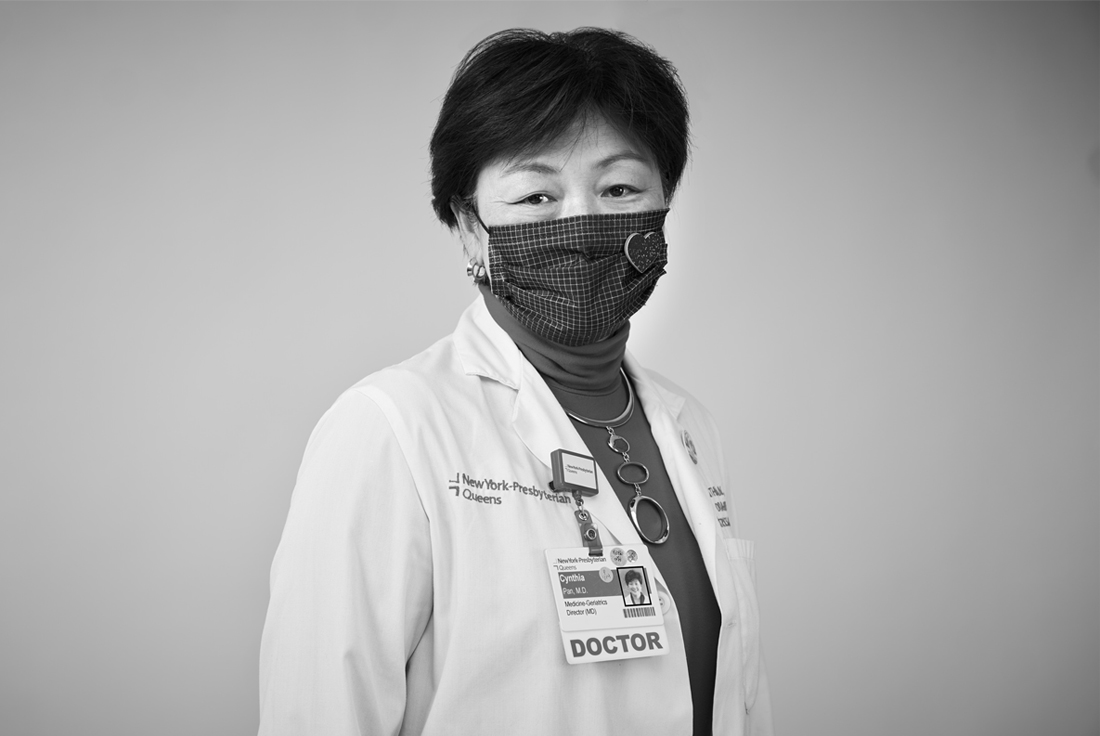
“I fought on the front lines of COVID and was nearly attacked for being Asian.”
Dr. Cynthia Pan
Director of Palliative Care, NewYork-Presbyterian Queens
These days, Dr. Cynthia Pan makes sure she is always carrying her personal safety siren and pepper spray. Every time the director of palliative care at NewYork-Presbyterian Queens leaves the hospital — even if it’s just to step outside to pick up lunch — she asks a colleague to walk with her. Dr. Pan has feared for her personal safety since she was nearly attacked in March.
She was leaving a diner with her 15-year-old son when, in broad daylight, an individual started to follow and intimidate them. When the person lunged toward Dr. Pan, her son stepped in and managed to scare him away. “I was shaken up,” she says. “We went to my car to call 911 and reported it. And then I asked my son, ‘What did he say to you?’ He said the guy told him, ‘She’s mine.’ Thank God we discussed anti-Asian biases in advance. We were prepared, and my son was there to defend me.”
For the past year, Dr. Pan had been on the front lines of the COVID-19 pandemic in the hard-hit Queens community. As a palliative care specialist, she is trained to deal with serious illnesses, but the pandemic brought an overwhelming amount of loss that was impossible to prepare for. Dr. Pan contracted the virus in April 2020, and even as she struggled to breathe while trying to recover at home, she texted her colleagues to offer her support. “Nobody backed down,” she says.
If there is a silver lining to the past year, it’s that COVID-19 showed Dr. Pan the power of solidarity — how coming together can get people through times of crisis. She keeps that in mind as she speaks up about racism and Asian hate. “People have to stand up for each other and do the right thing,” she says. “During those hazy moments of COVID, I realized my true north: It is that we have to take care of our patients, of course, and we have to take care of ourselves. We must take care of each other and speak up for each other.”
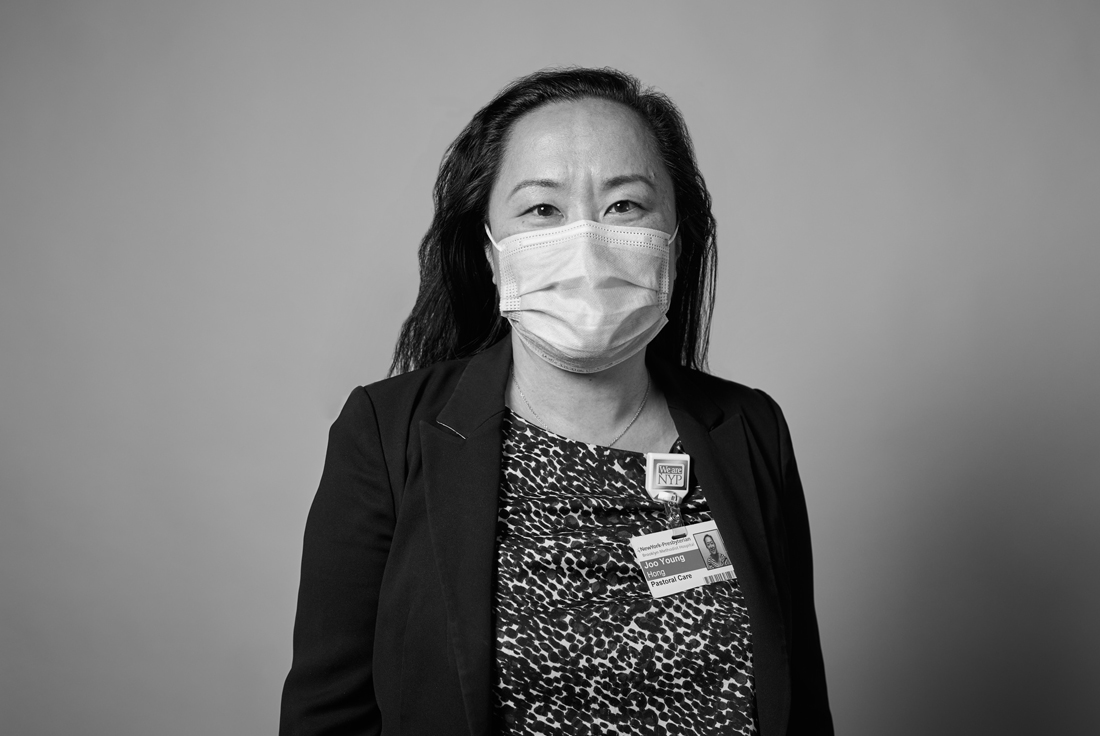
“I have a responsibility to use my voice while also listening to the voices and the perspective of others.”
Joo Young Hong
Chaplain, NewYork-Presbyterian Brooklyn Methodist Hospital
Growing up, Joo Young Hong was always seen as the smart and quiet one. “Everyone always thought I was much more studious than I was,” says Hong, a chaplain on the pastoral care team at NewYork-Presbyterian Brooklyn Methodist Hospital. “I got a lot of credit for my work ethic, and I thought this was the best thing — that no one would bother me because I’m just the quiet Asian girl.”
But in the wake of a racial reckoning throughout the country, Hong, who has been inspired by the activism she’s seen in the Black community, has found herself reflecting on her own experiences and the perception others have of her because of her race. “I realized that was actually not OK,” she says of the treatment she received growing up. “Everything that’s been going on has made me think about who I am and how I’m perceived, and how I want to be perceived.”
For Hong, this has been a time of intense reflection, including in her role in pastoral care throughout the pandemic. Last March, her team had to transform the way they worked — unable to be at bedside of dying patients and yet wanting to be a source of support for so many families and healthcare workers. “Everyone felt helpless,” she says. “And so it did call upon me to really dig deeper into my own faith to be able to face the fears of what was happening and not be consumed by it.”
It’s with that same resolve that Hong is approaching the current climate of violence and racism against Asian Americans. “We’ve been living in such a fearful and vulnerable time, so a lot of the subdued prejudices that we carry have all been brought up to the surface,” she says. She has turned to meditation, and finds strength in the same Bible passage that helped her during 9/11 and the pandemic. Psalm 46 reads, “God is our refuge and strength, an ever-present help in trouble. Therefore we will not fear, though the earth give way and the mountains fall into the heart of the sea, though its waters roar and foam, though the mountains quake at its swelling.”
“The description of the whole earth trembling and shattering — I think a lot of us have felt that during this time because of the pandemic and the rise in racist hate,” she says. “But in my mind, there will be justice. That in the end, the Divine will prevail. There is hope that we can come out of this better and stronger as people.”
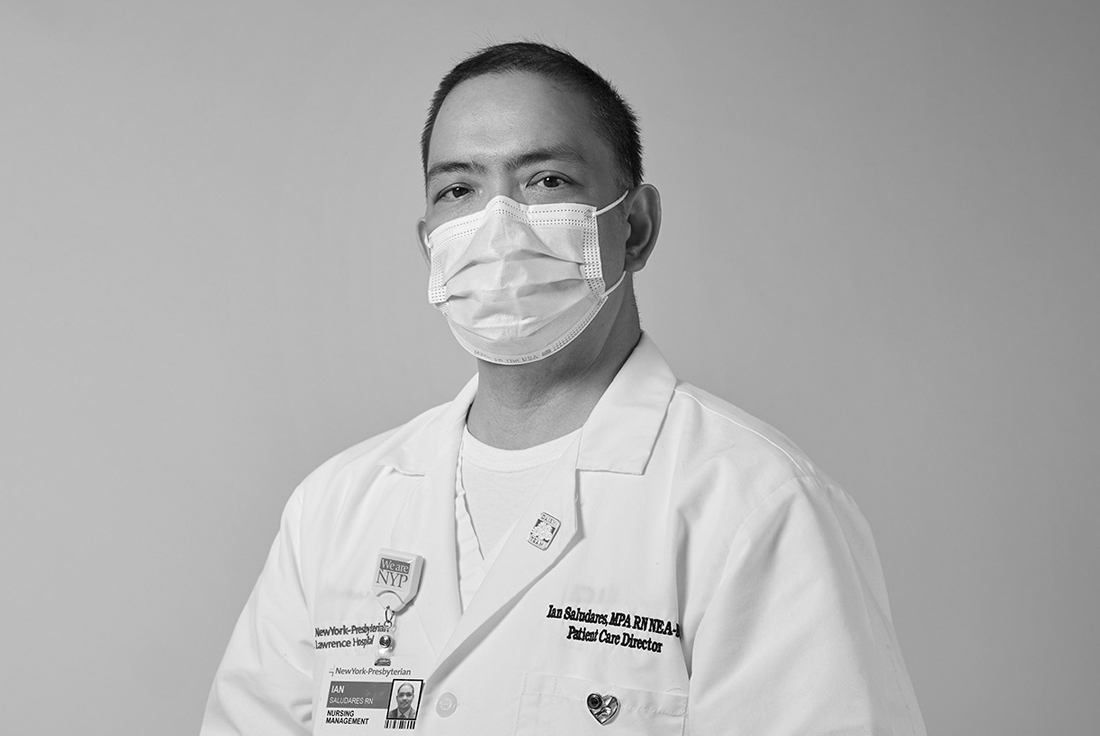
“I’m a nursing leader in the ICU, and I felt like my team has needed my support more than ever this year.”
Ian Saludares
Patient Care Director, NewYork-Presbyterian Lawrence Hospital
When the storm of COVID-19 hit NewYork-Presbyterian Lawrence Hospital last spring, Ian Saludares, the patient care director in the ICU unit, faced enormous challenges. He led a unit that had to increase its bed capacity, managed a schedule that was continuously impacted by staff who needed to quarantine, and worked to stay on top of ever-changing guidance and information about the virus.
But even amid all the chaos, Saludares knew how important it was to find a moment to check in and listen. “I needed to make sure I continued to build trust with my team — that they knew that I had their back,” he says. “And that they felt my presence more than ever in the unit.”
This spring, as his team recovers from the stress of the pandemic, many members are also dealing with the anxiety of racist incidents.
Recently Saludares invited one of his AAPI team members into his office. “I asked, ‘Are you OK? How is your day going?’” he remembers. “And then she just started crying. She was worried for her safety. She said, ‘Ian, I cannot even go out to do my groceries. I go out with pepper spray ready.’ I wanted her to know that her concerns are valid, and as a leader it’s my responsibility to be able to support her.”
While Saludares hasn’t experienced a violent hate incident, he does know the pain of the subtle digs. Saludares came to the United States from the Philippines when he was 26. On the first day of his job at a nursing home, he was being introduced by his manager when one of his colleagues commented, “Wow, another one fresh off the boat.” The phrase puzzled him at first, but he later realized that it was a microaggression insulting his immigrant status. Saludares has made a successful career and life for himself as an immigrant, and remains proud of his Filipino heritage, always carrying that spirit of warmth and celebration. And he works every day to learn from a team that is diverse in race, ethnicity, gender, and age. “I am always ready to listen, to give them space to be able to express or talk,” he says.
And while Saludares has done his share of listening this past year, he’s also been inspired to speak up. “With all the things that have been happening in the community, we have to call it out, put it out in the open,” he says. “Have your voice heard and stand up.”
- Language:
- English
- 中文
